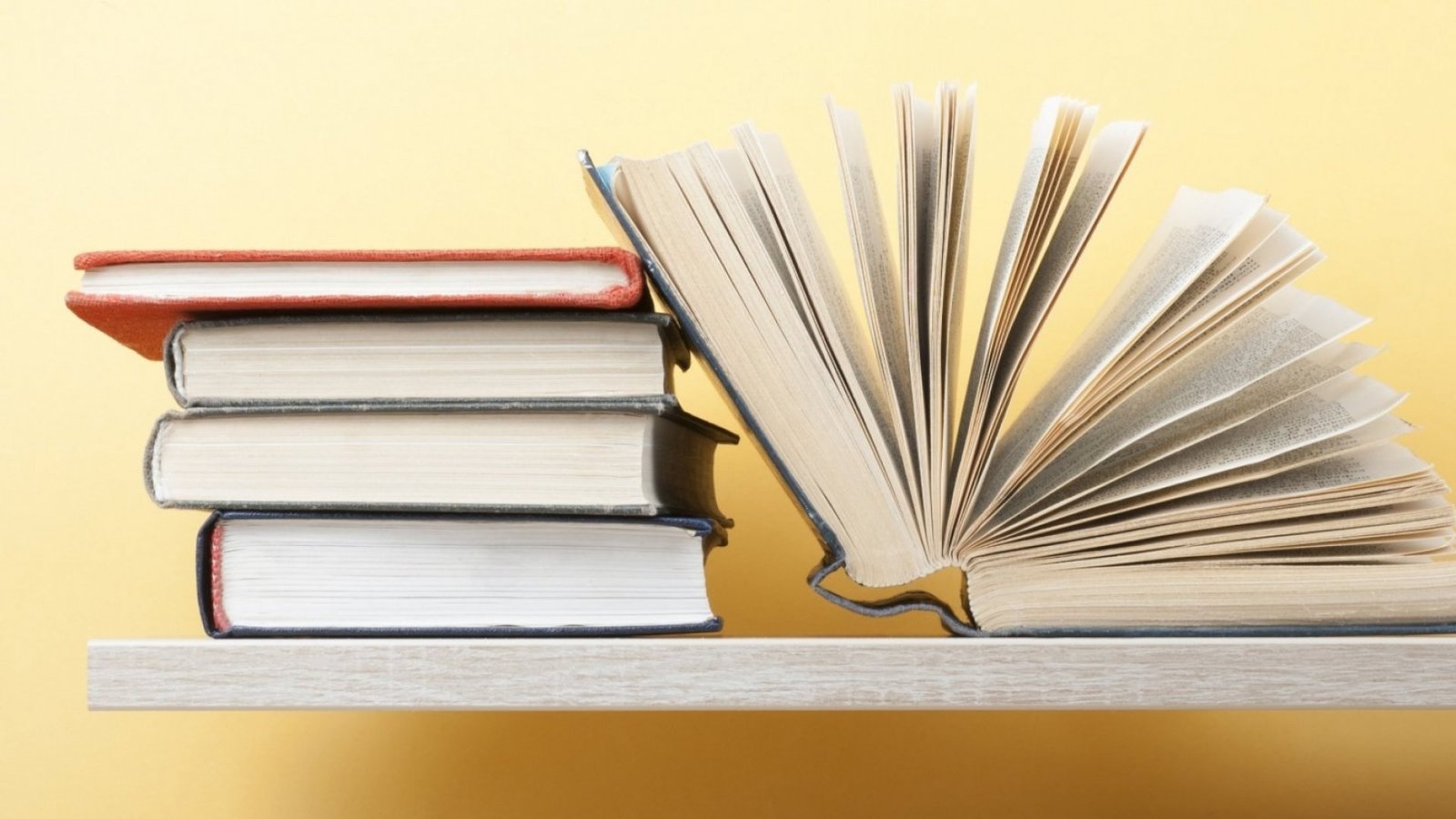
Most Knowledgeable and Helpful Books Every College Student Must Read
“An investment in knowledge pays the best interest.” – Benjamin Franklin
Knowledge is key, a key to everything. Life is nothing without it, and so Ashray Living makes sure that their students’ lives never seep into nothingness. Life is too short, and we should learn as much as we can, and always focus on the big goal.
Here we present a list of books considered to be helpful for those planning on climbing up the mountain of success.
Cheers to living a life of meaning, and one of purpose!
The Alchemist
The Alchemist is an allegorical novel published in 1988 by Paulo Coelho. After an initially lukewarm reception, it became a worldwide bestseller, with more than 65 million copies sold. The Alchemist is written by Paul Coelho and published by Rocco, an obscure Brazilian publishing house, in 1988. The genre of this novel is Allegorical, and the original language of the book is Portuguese.
The themes that follow in this novel are Personal Legend, pantheism, fear, omens, biblical metaphors. Coelho wrote The Alchemist in two weeks, and, after one year, the publisher gave the rights back to Coelho, who felt that he had to heal from the setback, which led him to spend time in the Mojave desert.
Santiago is a shepherd from Andalusia who, while resting in a church, dreams about pyramids and treasures. After having his dream interpreted by an old woman, and after learning the concept of “Personal Legends,” he sets out to find those pyramids. Significant stops in his journey include Tangier, where he works for a crystal merchant, and the oasis, where he falls in love with Fatima, a “desert woman,” and meets an alchemist.
During his travels, he also gets acquainted with the concept of the “Soul of the World,” which makes all beings partake in the same spiritual essence. This allows him to turn into the wind while facing some captors. Once he finally reaches the pyramids, he learns that the treasure he’d been looking for was by the church where he was resting at the beginning of the novel.
The Last Lecture
The Last Lecture, a book co-written by computer science professor Randy Pausch and Wall Street Journal reporter Jeffrey Zaslow, was published in 2008 by Hyperion. It is based on the highly acclaimed and inspirational lecture presented by Pausch at Carnegie Mellon University on September 18, 2007
The title of the book is derived from the concept of a retiring professor’s “last lecture,” which includes the professor’s insights into life and what really matters. Pausch was forced to deliver an untimely and very literal last lecture after facing a diagnosis of terminal pancreatic cancer. His lecture, titled "Really Achieving Your Childhood Dreams," was delivered in front of an audience filled with Pausch’s family, friends, students, and colleagues; it quickly received praise from the public after a copy was posted online, and Pausch even gave an abridged version of his lecture on an episode of The Oprah Winfrey Show.
Written with humor and wisdom, this book serves as a reflection of the main points of Pausch’s lecture. In it, Pausch discusses the importance of childhood dreams and how to go about achieving them as one grows older.
The major points of his book include taking the time to dream, the importance of good parents in a child’s life, and how to put people before materials. Intertwined in the major themes of his lecture are Pausch’s own personal anecdotes, complete with how he was able to turn his boyhood dreams into reality, including becoming an Imagineer for Walt Disney World and creating the Alice software project.
In The Last Lecture, Randy Pausch says, “We cannot change the cards we are dealt, just how we play the hand.” Through his stories and experience, Pausch imparts readers with a “how-to” guide when striving to reach goals and dreams, but the book also serves as one man’s legacy to his three young children. Pausch lived to see The Last Lecture become a New York Times bestseller in April of 2008. He lost his battle with pancreatic cancer on July 25, 2008, at the age of forty-seven, but not before inspiring millions of readers to never stop believing in their dreams.
The 7 Habits of Highly Effective People
The 7 Habits of Highly Effective People, first published in 1989, is a business and self-help book written by Stephen R. Covey. Covey presents an approach to being effective in attaining goals by aligning oneself to what he calls "true north" principles based on a character ethic that he presents as universal and timeless.
Covey defines effectiveness as the balance of obtaining desirable results with caring for that which produces those results. He illustrates this by referring to the fable of the goose that laid the golden eggs. He further claims that effectiveness can be expressed in terms of the P/PC ratio, where P refers to getting desired results and PC is caring for that which produces the results.
Covey's best-known book has sold more than 25 million copies worldwide since its first publication. The audio version became the first non-fiction audio book in U.S. publishing history to sell more than one million copies. Covey argues against what he calls "the personality ethic", which he sees as prevalent in many modern self-help books.
He promotes what he labels "the character ethic": aligning one's values with so-called universal and timeless principles. In doing this, Covey distinguishes principles and values. He sees principles as external natural laws, while values remain internal and subjective. Our values govern our behavior, while principles ultimately determine the consequences. Covey presents his teachings in a series of habits, manifesting as a progression from dependence through independence on to interdependence.
The Fountainhead
The Fountainhead is a 1943 novel by Russian-American author Ayn Rand, her first major literary success. The novel's protagonist, Howard Roark, is an intransigent young architect, who battles against conventional standards and refuses to compromise with an architectural establishment unwilling to accept innovation.
Roark embodies what Rand believed to be the ideal man, and his struggle reflects Rand's belief that individualism is superior to collectivism.
Roark is opposed by what he calls "second-handers", who value conformity over independence and integrity. These include Roark's former classmate, Peter Keating, who succeeds by following popular styles but turns to Roark for help with design problems. Ellsworth Toohey, a socialist architecture critic who uses his influence to promote his political and social agenda, tries to destroy Roark's career.
Tabloid newspaper publisher Gail Wynand seeks to shape popular opinion; he befriends Roark, then betrays him when public opinion turns in a direction he cannot control. The novel's most controversial character is Roark's lover, Dominique Francon. She believes that non-conformity has no chance of winning, so she alternates between helping Roark and working to undermine him.
Twelve publishers rejected the manuscript before an editor at the Bobbs-Merrill Company risked his job to get it published. Contemporary reviewers' opinions were polarized. Some praised the novel as a powerful paean to individualism, while others thought it overlong and lacking sympathetic characters. Initial sales were slow, but the book gained a following by word of mouth and became a bestseller.
More than 6.5 million copies of The Fountainhead have been sold worldwide and it has been translated into more than 20 languages. The novel attracted a new following for Rand and has enjoyed a lasting influence, especially among architects, entrepreneurs, American conservatives, and libertarians.
Ignited Minds
Ignited Minds: Unleashing the Power Within India is a book written by A. P. J. Abdul Kalam, who was the President of India from 2002 to 2007. Ignited Minds is a logical step forward from Dr. Kalam's earlier book, India 2020: A Vision for the New Millennium. This book consists of many inspirational messages by A P J Abdul Kalam.
Dr. Kalam has dedicated Ignited Minds to an intermediate school child, named Snehal Thakkar, whom he met at a school and while talking to his students, a question had come up: "Who is our enemy?". Kalam recalled that many answers came up, but the answer on which all agreed came from his (Snehal Thakkar): "Our enemy is poverty".
The small book of 205 pages contains dynamic and original ideas, examines attitudes afflicting the Indians and presents prescriptions for the rapid growth of India to enable the country to emerge as a developed country. The scientist and the seer inside Kalam have addressed the book to young citizen(s) of India. This book has been the most wanted and demanded all over the world after the death of Abdul Kalam.
Make Your Bed
Make Your Bed is based on Admiral William H. McRaven’s commencement speech for the graduating class from the University of Texas at Austin. In it, McRaven shares the ten lessons he learned from Navy SEAL training. They are simple lessons that deal with overcoming the trials of SEAL training, but
the ten lessons are equally important in dealing with the challenges of life—no matter who you are.
Napkin Finance
Anyone feeling baffled and confused about money should check out a clever book by Tina Hay called Napkin Finance. It is indeed good, but “Napkin Finance” works as much because of its visuals as the words. Each browsable chapter is fronted by simple, whimsical sketches — the kind someone might draw on a napkin during an endless Zoom meeting.
GMorning, Gnight!
Lin-Manuel Miranda’s book contains heapings of heart-warming and entertaining daily anecdotes that give you the energy to start the day and peace with which to end the night. The book begins with a lovely little poem about Lin’s desire to start this book.
The Defining Decade
The Defining Decade (2012), a self-help book by clinical psychologist Meg Jay, critiques modern views about young adulthood which, in the author’s view, often trivialize its critical role in establishing the mental groundwork for healthy and happy adult life.
Jay draws on her experiences as a counselor to individuals who have passed out of their twenties and are overcome with regret for having squandered the opportunity to figure out their desires and identity during this time.
Jay speaks directly to people who now inhabit this critical phase, suggesting ways to prepare behavioral and mental frameworks that will minimize regret.
The Freshman Survival Guide
The Freshman Survival Guide is written by Nora Bradbury and Bill McGarvey, is a completely revised and updated values-based guide to navigating the first year of college that speaks to college students in their own language and offers practical tools that readers need to keep from drinking, sleeping, or skipping their way out of college.
Conclusion
A book is a man’s best friend, we believe in it undoubtedly. For the welfare of our students, Ashray Living’s library is filled with books like these to read which will not just increase the depth of one’s knowledge but also help achieve all the success in the world. As Ashray believes in nurturing the growth of its students, it doesn’t compromise on quality and offers only what’s best for their future, always.
We are Ashray Living.








